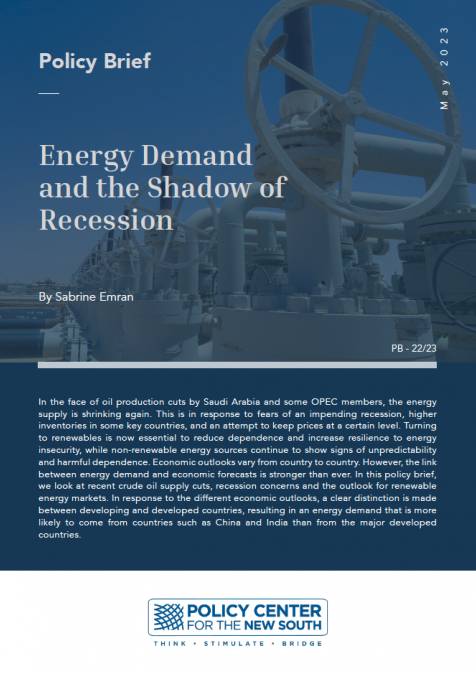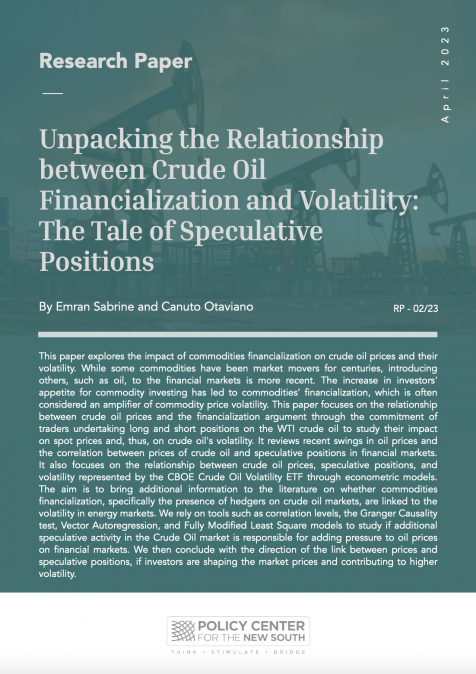Otaviano Canuto, Policy Center for the New South The contrast between the scarcity of investments in infrastructure – particularly in non-advanced economies – and the excess of savings invested in liquid and low-return assets in the global economy deserves to be confronted. Greening infrastructure in non-advanced economies would benefit from being able to attract greenbacks into the business. Building a bridge between private finance and (green) infrastructure would need the development of pipeline of projects with homogeneous regulations and standards, as well as with minimum mismatch between risks and comfort of private investors to manage them along project stages.
Speakers

Otaviano Canuto
Senior Fellow
Senior Fellow at the Policy Center for the New South, Affiliate Professor at Mohammed VI Polytechnic University and Non-Resident Senior Fellow at Brookings Institute. Former Vice President and Executive Director at the World Bank, Executive Director at the International Monetary Fund (IMF) and Vice President at the Inter-American Development Bank.
...











